Coronavirus: Birmingham 'faces tougher lockdown if rules ignored'
- Published
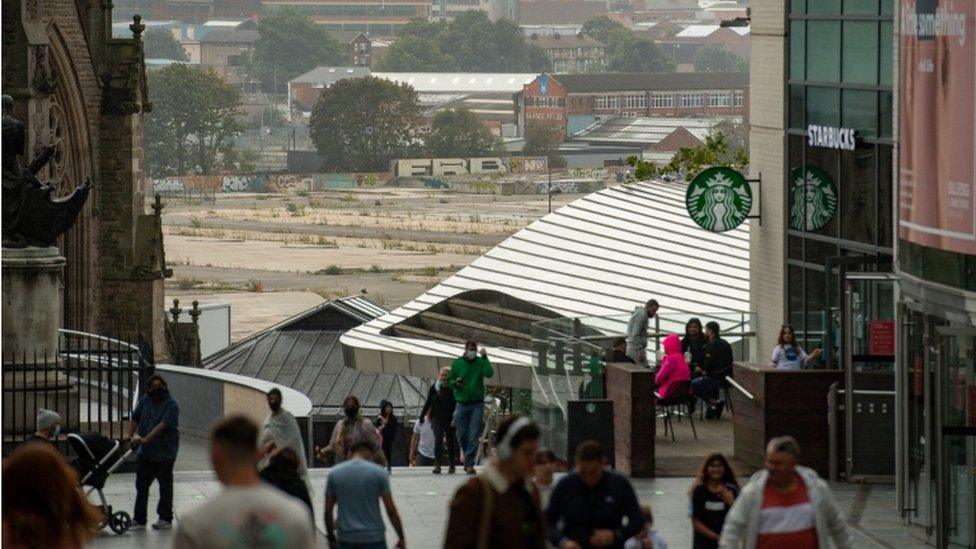
Birmingham will become subject to a local lockdown from Tuesday, with people unable to mix households in homes and gardens
The West Midlands mayor has warned people must comply with new local lockdown restrictions or face even tougher measures.
Households in Birmingham, Solihull and Sandwell must not mix from Tuesday following a spike in coronavirus cases.
"We will use these restrictions, look at how the numbers move, and if they are not sufficient, we might have to go further," Andy Street said on Sunday.
"Everybody now has to comply with these to give us the best chance."
The rate of infection has more than doubled in Birmingham in a week, to 90.3 cases per 100,000.
Under the new rules, people are banned from meeting others who are not in their household or support bubble, indoors or in private gardens.
Council leader Ian Ward said data showed "the infection rate has risen mainly due to social interactions, particularly private household gatherings".
The restrictions, which affect 1.6 million people, will run alongside wider restrictions coming into force in England on Monday, banning social gatherings of more than six people.
Speaking on Politics Midlands, Mr Street explained why people were still allowed to attend workplaces, schools and other establishments such as pubs and restaurants.
"The whole point is that the areas that have been prepared in a Covid-safe way - schools, offices - we're saying that can continue but it has to be done in a way in which people feel confident about it.
"Critically, those places have been examined for safety for people to return."
Birmingham residents have reacted to the new lockdown restrictions
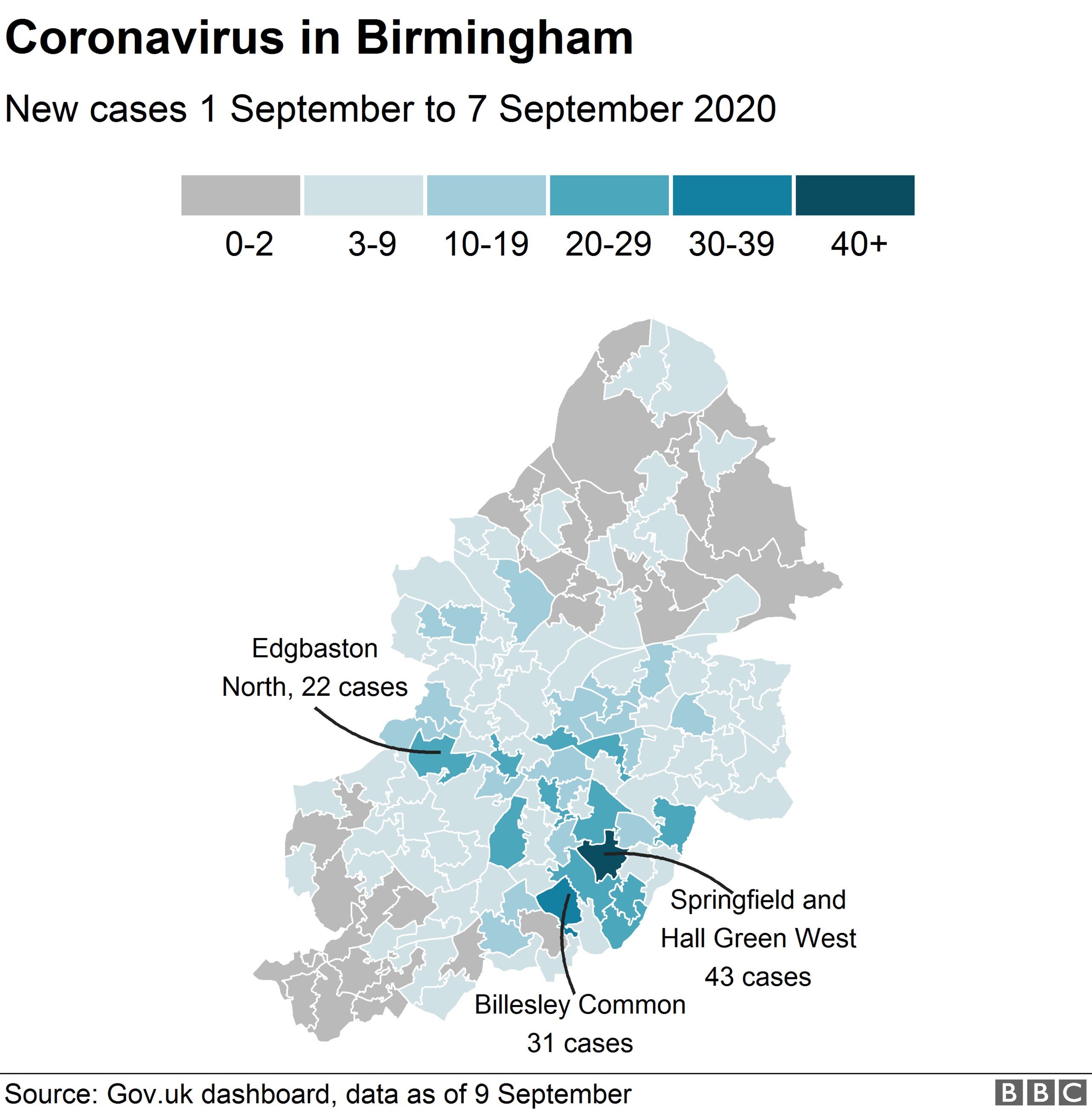
Birmingham's coronavirus infection rate has more than doubled from 35.9 per 100,000 the previous week.
Springfield and Hall Green West, in the south-east of the city, had the most cases with 42, a sharp rise on the previous full week, when only 11 were recorded.
Virus 'relentless'
Wake Green East and Moseley Bog, just south of Springfield, went from recording between 0 to 2 cases for the past four weeks, to 29 most recently.
On Friday, Mr Ward said the virus has not "weakened", calling it "relentless".
In Wolverhampton, health officials have urged people to restrict mixing with other households to prevent having to introduce official measures in the city.
Dr Ankush Mittal, of Wolverhampton Council, said its own higher rate meant it could soon see a "similar scenario" to Birmingham.
Wolverhampton's rate rose from 11.8 to 56.2 cases per 100,000 in a week.
The latest data showed there were 148 cases of Covid-19 in Wolverhampton up to 8 September, compared with 31 during the previous week.

SOCIAL DISTANCING: What are the rules now?
SUPPORT BUBBLES: What are they and who can be in yours?
LOOK-UP TOOL: How many cases in your area?

Follow BBC West Midlands on Facebook, external, Twitter, external and Instagram, external. Send your story ideas to: newsonline.westmidlands@bbc.co.uk , external
- Published11 September 2020
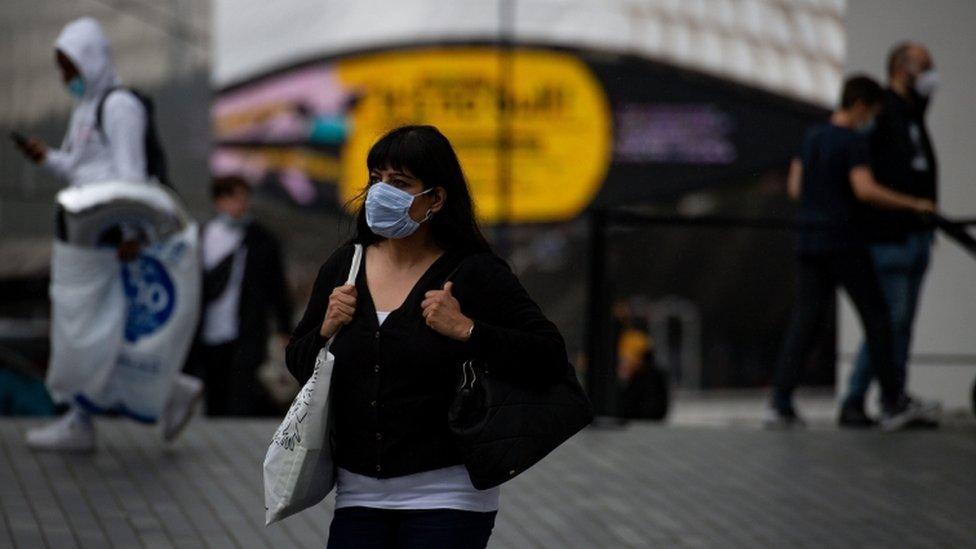
- Published11 September 2020
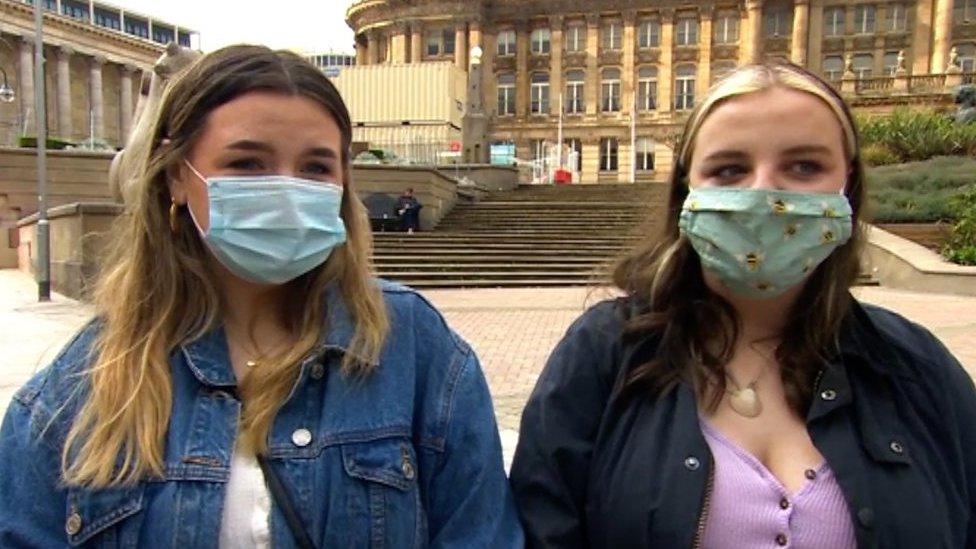
- Published11 September 2020
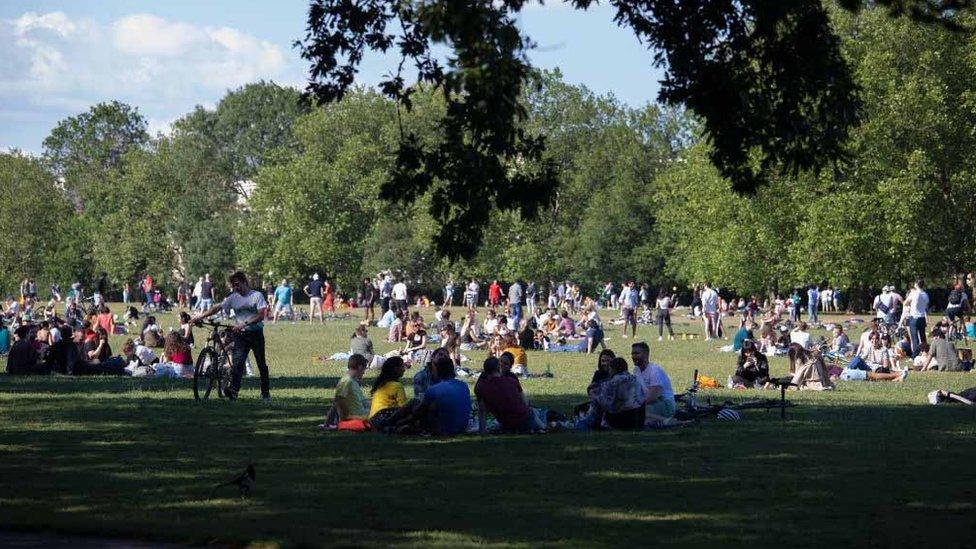
- Published4 November 2020
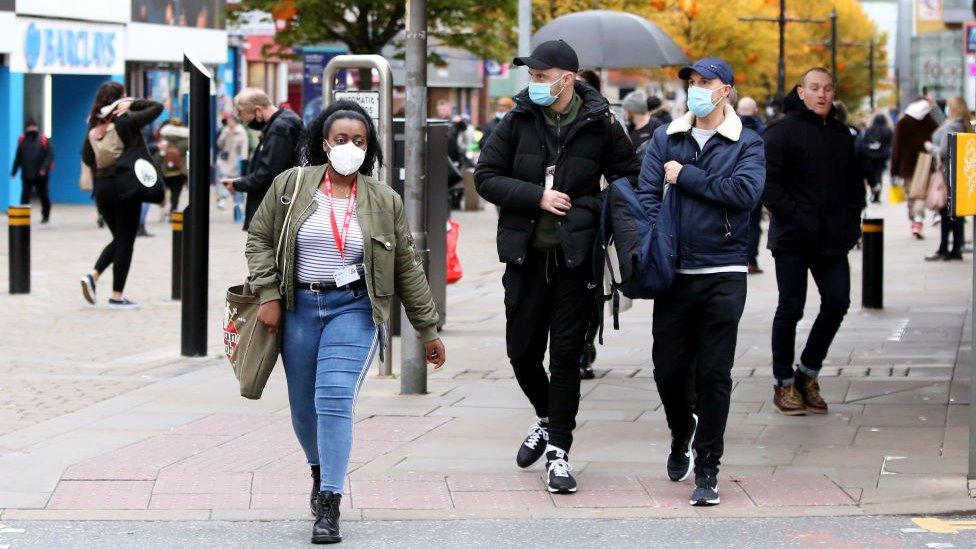
- Published9 September 2020

- Published9 September 2020
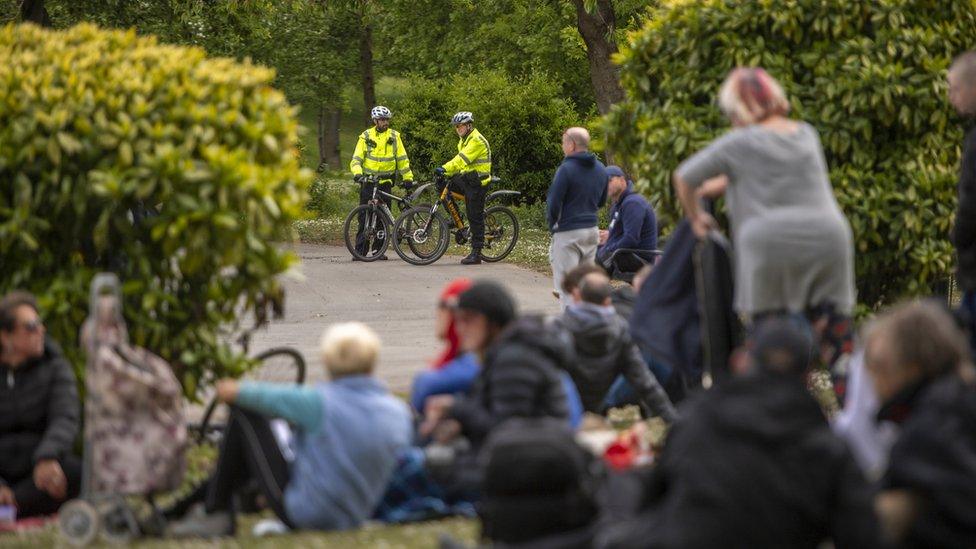
- Published4 September 2020
